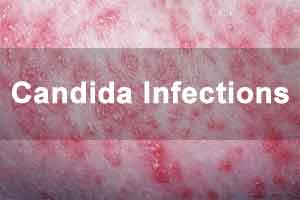- Home
- Editorial
- News
- Practice Guidelines
- Anesthesiology Guidelines
- Cancer Guidelines
- Cardiac Sciences Guidelines
- Critical Care Guidelines
- Dentistry Guidelines
- Dermatology Guidelines
- Diabetes and Endo Guidelines
- Diagnostics Guidelines
- ENT Guidelines
- Featured Practice Guidelines
- Gastroenterology Guidelines
- Geriatrics Guidelines
- Medicine Guidelines
- Nephrology Guidelines
- Neurosciences Guidelines
- Obs and Gynae Guidelines
- Ophthalmology Guidelines
- Orthopaedics Guidelines
- Paediatrics Guidelines
- Psychiatry Guidelines
- Pulmonology Guidelines
- Radiology Guidelines
- Surgery Guidelines
- Urology Guidelines
New oral & IV antifungal agent in offing for Vulvovaginal Candidiasis

Vulvovaginal Candidiasis VVC, commonly known as a "yeast infection," is usually caused by Candida albicans, and typical symptoms include pruritus, vaginal soreness, irritation and abnormal vaginal discharge. An estimated 75% of women worldwide will have at least one episode of VVC in their lifetime.At present, there is no approved therapy to treat recurrent Vulvovaginal Candidiasis, VVC.
Food and Drug Administration (FDA) has granted Fast Track and Qualified Infectious Disease Product (QIDP) designations for the oral formulation of SCY-078 for the treatment of vulvovaginal candidiasis (VVC) and for the prevention of recurrent VVC.
"These designations from the FDA for the treatment of VVC and prevention of recurrent VVC highlight the significant unmet needs faced by women suffering from these widespread infections," said Marco Taglietti, M.D., President and Chief Executive Officer of SCYNEXIS.
SCY-078 is an investigational oral and intravenous (IV) antifungal agent that is a semi-synthetic derivative of enfumafungin. It is a first-in-class agent of structurally-distinct glucan synthase inhibitors called triterpenoids.
In Phase 1 studies, SCY-078 was generally well-tolerated at clinically relevant doses. It has demonstrated a broad spectrum of antifungal activity in vitro and in vivo against multi-drug resistant pathogens, including azole- and echinocandin-resistant strains. The most common adverse events following oral administration were mild or moderate gastrointestinal events; the most common adverse events following IV administration were local reactions at the injection site.
Scynexis has announced that patient enrollment for a Phase 2b, dose-finding study of oral SCY-078 (DOVE study) in the treatment of VVC has been completed. This study is intended to assess the safety, efficacy, tolerability, and pharmacokinetics of 5 different regimens of oral SCY-078 to determine the optimal dose to be tested in a Phase 3 program; top-line data are expected by July 2018 and the Phase 3 program is anticipated to start in the 4th quarter.
It has demonstrated the broad spectrum of antifungal activity, in Vitro and in vivo, against multi-drug resistant pathogens, including azole- and echinocandin-resistant strains. The FDA has granted QIPD and Fast Track designations for the formulations of SCY-078 for the indications of invasive candidiasis (IC) (including candidemia), invasive aspergillosis (IA), and VVC, and has granted Orphan Drug Designation for the IC and IA indications.

Disclaimer: This site is primarily intended for healthcare professionals. Any content/information on this website does not replace the advice of medical and/or health professionals and should not be construed as medical/diagnostic advice/endorsement or prescription. Use of this site is subject to our terms of use, privacy policy, advertisement policy. © 2020 Minerva Medical Treatment Pvt Ltd